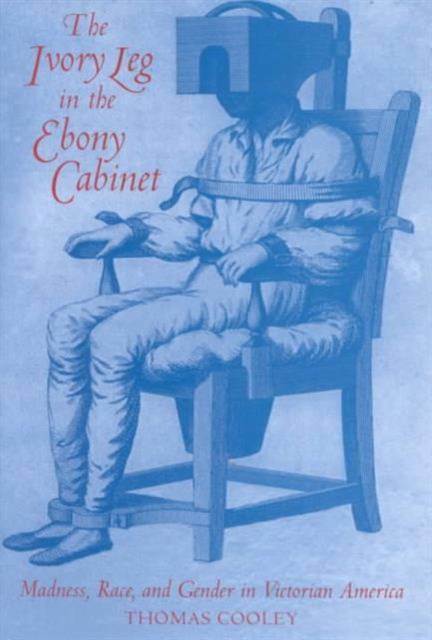
- Afhalen na 1 uur in een winkel met voorraad
- Gratis thuislevering in België vanaf € 30
- Ruim aanbod met 7 miljoen producten
- Afhalen na 1 uur in een winkel met voorraad
- Gratis thuislevering in België vanaf € 30
- Ruim aanbod met 7 miljoen producten
Zoeken
The Ivory Leg in the Ebony Cabinet
Madness, Race, and Gender in Victorian America
Thomas Cooley
Hardcover | Engels
€ 53,45
+ 106 punten
Omschrijving
From Samuel Morton's collection of Native American skulls to William James's writings on the consciousness of lost limbs, this book examines a startling array of artifacts that reflect nineteenth-century thinking about madness, race, and gender. According to Thomas W. Cooley, what unites these seemingly disconnected cultural fragments is the governing model of psychology, as it was just then coming to be called, that shaped the American understanding of mind before the age of Freud. Essentially a faculty psychology, this model conceived of the human mind as a set of separate roomlike compartments, each with its proper office or capacity. Under this architecture, a healthy mind was characterized by the harmonious interrelation of these faculties; madness, conversely, was believed to occur when the chambers of the mind became cut off from one another. In addition, gender and racial qualities were associated with different mental functions: the reasoning intellect took on a masculine and white valence, while the emotions and appetitive faculties were considered feminine or black. What was thought to be true for the individual also applied to the group. Thus a balanced mind, a happy marriage, and a strong nation all drew their legitimacy from the same essentially racist and sexist model, one that posited a union of parts arrayed in an ostensibly natural hierarchy of authority. In effect a master/slave psychology, this paradigm prevailed in American thought until the end of the nineteenth century. As Cooley shows, it profoundly shaped artifacts of American high culture as well as low--from the writings of Hawthorne, Stowe, Douglass, Dickinson, and the Jameses to political speeches, medical treatises, phrenological sculptures, and sideshow exhibitions.
Specificaties
Betrokkenen
- Auteur(s):
- Uitgeverij:
Inhoud
- Aantal bladzijden:
- 344
- Taal:
- Engels
Eigenschappen
- Productcode (EAN):
- 9781558492844
- Verschijningsdatum:
- 19/06/2001
- Uitvoering:
- Hardcover
- Formaat:
- Genaaid
- Afmetingen:
- 163 mm x 243 mm
- Gewicht:
- 689 g

Alleen bij Standaard Boekhandel
+ 106 punten op je klantenkaart van Standaard Boekhandel
Beoordelingen
We publiceren alleen reviews die voldoen aan de voorwaarden voor reviews. Bekijk onze voorwaarden voor reviews.








